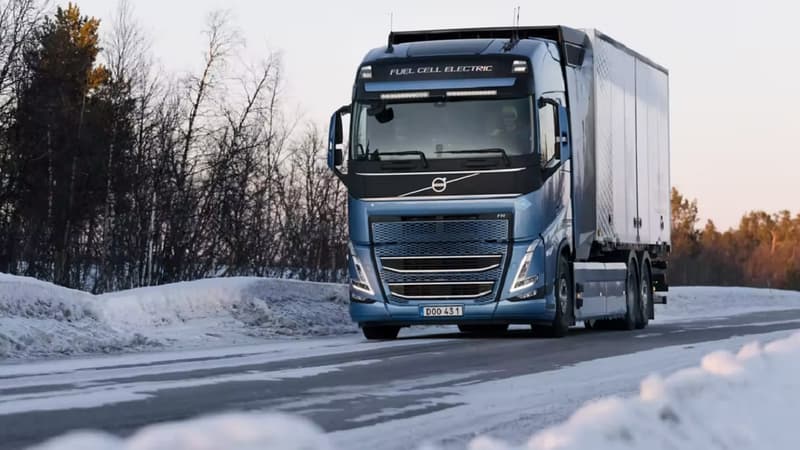It is a world first. Volvo Trucks has tested its hydrogen-powered fuel cell electric trucks on public roads.
“The tests were carried out in Sweden in quite extreme weather conditions,” explains BFM Business Jérôme Flassayer, director of alternative energy electromobility at Volvo Trucks France. Despite everything, “the tests have gone very well.”
Volvo Trucks says that its electric trucks “will be particularly suitable for long journeys and situations where using batteries alone is not possible, for example in rural areas without charging infrastructure.”
Released late in the decade.
For the manufacturer, the goal is above all to “reduce (its) carbon footprint”, says Jérôme Flassayer. In fact, hydrogen trucks “only emit water vapour”, he stresses, recalling that Volvo Trucks wants to reduce “by 50% (its) CO2 emissions by 2050”.
Volvo’s hydrogen electric truck is still in a development phase that should last a few years. The manufacturer expects a market launch in the second half of the decade, with six models produced in series, “around 2027-2028”, estimates Jérôme Flassayer.
An adapted factory in Sweden
For this, Volvo has adapted the operation of its plant in Gothenburg, Sweden. “In the production line we use the same personnel and the same equipment, but instead of placing a diesel engine, we place an electrical module”, explains the vice president of operations, Sandra Finer.
The manufacturer aims to sell 50% zero emission trucks by 2030 and 100% by 2040. They currently only account for 1-2% of the market. But the head of Volvo’s “truck” branch wants to be optimistic.
“It really started to take off in Northern Europe and North America. Now it’s moving south into Europe, but also into other markets in Africa, Australia, Brazil, on a country-by-country basis,” says Roger Alm.
One big hurdle remains: price. Currently, an electric truck costs between two and three times more than a diesel.
Source: BFM TV


